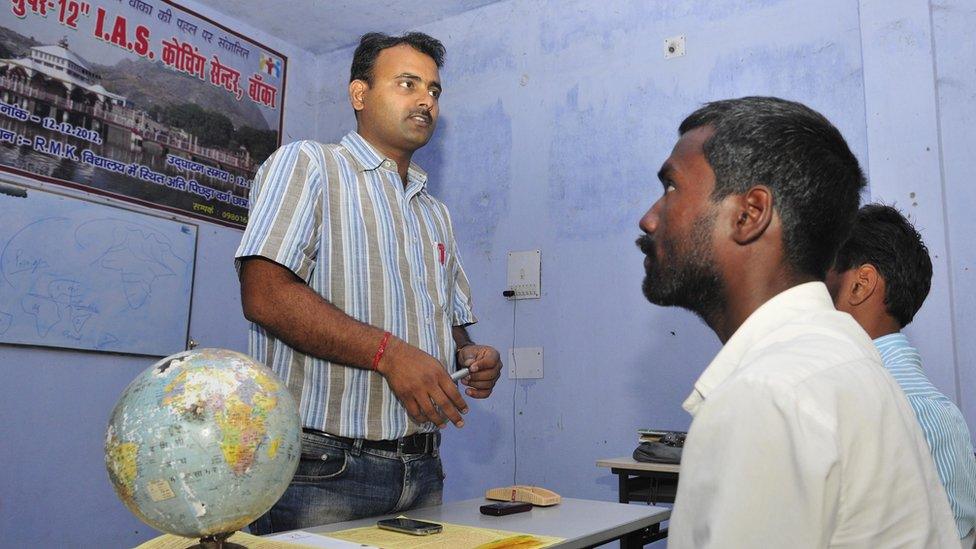India NEET, JEE exams: 'Conducting these exams will be a giant mistake'
- Published
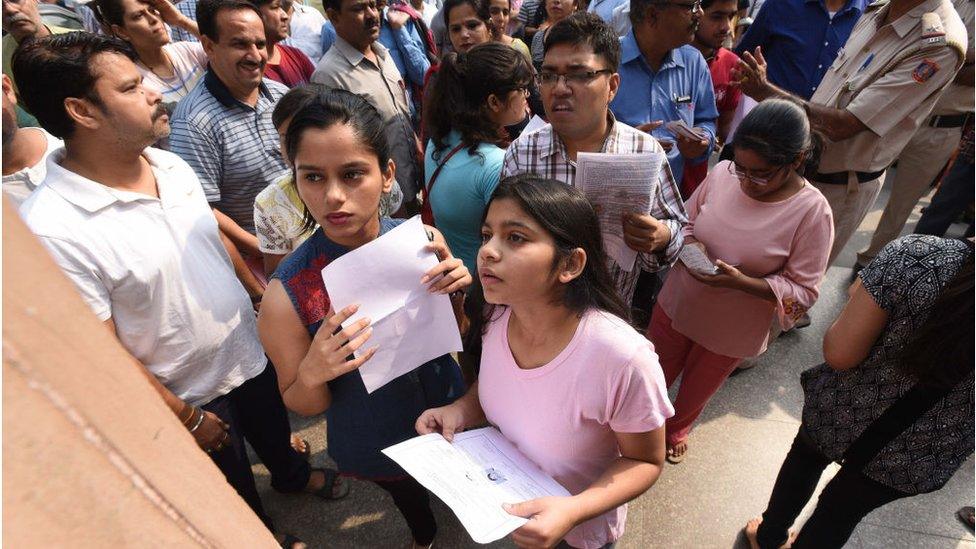
Around 1.5 million students have registered for NEET this year.
Two competitive tests that determine the fate of millions of India's students every year are at the centre of a growing controversy.
Many students want the exams, scheduled for September, postponed due to fears over rising Covid-19 case numbers.
They have taken to social media to protest, and some even petitioned the Supreme Court to intervene.
But the National Testing Agency (NTA), which conducts the exams, has so far refused to reschedule them.
And the Supreme Court dismissed the students' plea, saying that "ultimately life has to go on and the career of the students cannot be put on peril for long and a full academic year cannot be wasted".
Students continue to protest on Twitter and other social media platforms - on Monday, more than 4,000 called for a day-long hunger strike online. #PostponeJEEAndNEET and #StudentsLivesMatter have been trending on Twitter.
Why do some students want the exam postponed?
The controversy over the exam dates erupted just as India crossed three million Covid-19 cases over the weekend.
Allow X content?
This article contains content provided by X. We ask for your permission before anything is loaded, as they may be using cookies and other technologies. You may want to read X’s cookie policy, external and privacy policy, external before accepting. To view this content choose ‘accept and continue’.
Students say they are scared they could contract the virus on the way to the exam centre, or at the centre itself, risking their lives and those of their families.
"Our apartment complex has Covid-19 cases. To get out and take the exam will be a big issue. This is very risky for me," a student who didn't want to be named told BBC Hindi.
They are also concerned about sitting such an important exam with gloves and masks on, and amid the added anxiety they might contract Covid-19.
"There is already so much mental pressure and stress from the examination itself," Aman, a student who has registered for NEET this year, told BBC Hindi. "Some people say that students are capable of giving these exams. This is not a matter of being capable or incapable."
But Covid-19 is not the only issue. Floods have ravaged the states of Bihar and Assam, affecting as many as eight million people. And to curb the spread of Covid-19, Bihar has also imposed a lockdown until 6 September, complicating matters further.
Manas Chandra, whose village in Bihar is flooded, told BBC Hindi his closest exam centre is 90km (56 miles) away.
"How will I get to my centre? There is no public transport. And if I get infected, who is going to be held responsible?"
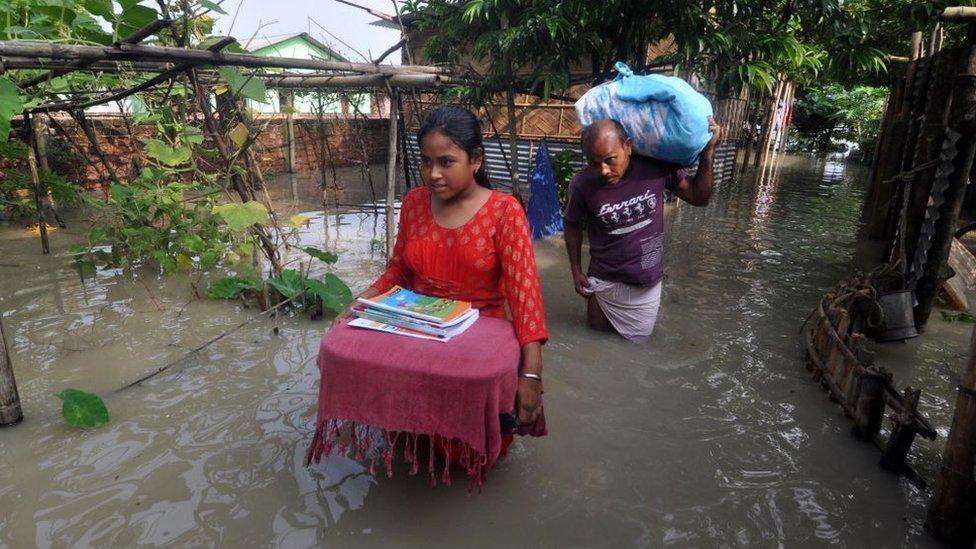
Students say travelling to exam centres in flooded areas will be hard
Aarya Shandilya, another student from Bihar who has registered for the exams, says transport is the biggest issue because there are just two centres in the state's 32 districts.
Sayantan Biswas, one of the 11 students who petitioned the Supreme Court to postpone the exams, says that some students live 200km away from the centres.
"This means they will have to leave a day in advance. Where will they stay? Where will they eat? How will they get there?"
But many students also want the examinations to be held this year.
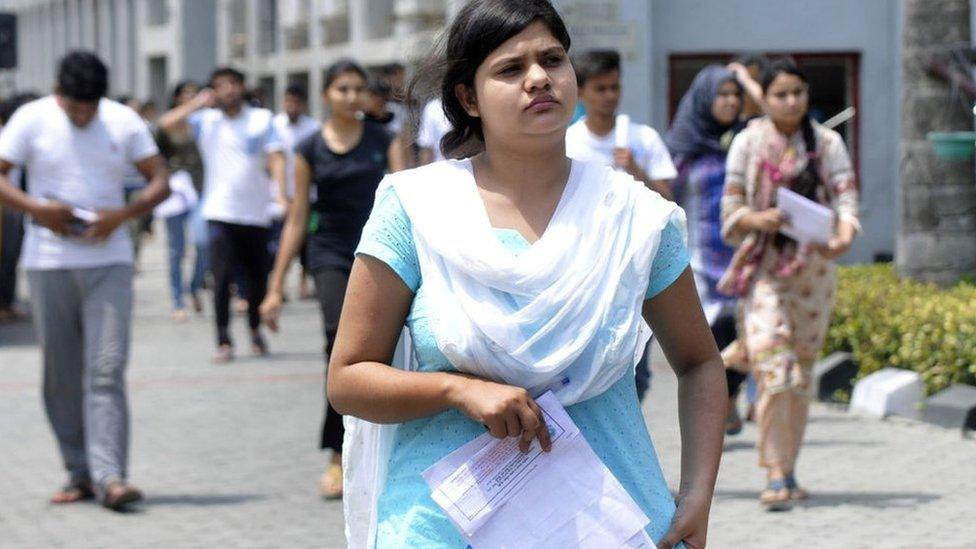
Many students also want the exams to be held as per schedule
A week after students petitioned the Supreme Court asking for the exams to be postponed, another group of students appealed to the court, external to let the exams continue as per schedule.
They said they didn't want students who have been preparing for the exams for the last two years to lose any more time or face more anxiety wondering when they will finally be held.
What is the government saying?
The NTA, which is a part of the federal education ministry, says it has already moved the date several times this year due to the pandemic - and the tests cannot be put off any longer.
It has also detailed the elaborate safety measures it is taking, from sanitising the examination centres before and after the exams, to providing masks and gloves for students. Other arrangements include staggered entry, temperature checks and social distancing inside and outside the centres. The agency said it has also increased the number of exam centres so fewer students sit the exams in each one.
But students seem unconvinced.
"We have seen how standard operating procedures to maintain social distancing at centres failed during Kerala and Karnataka state examinations," Aman said.
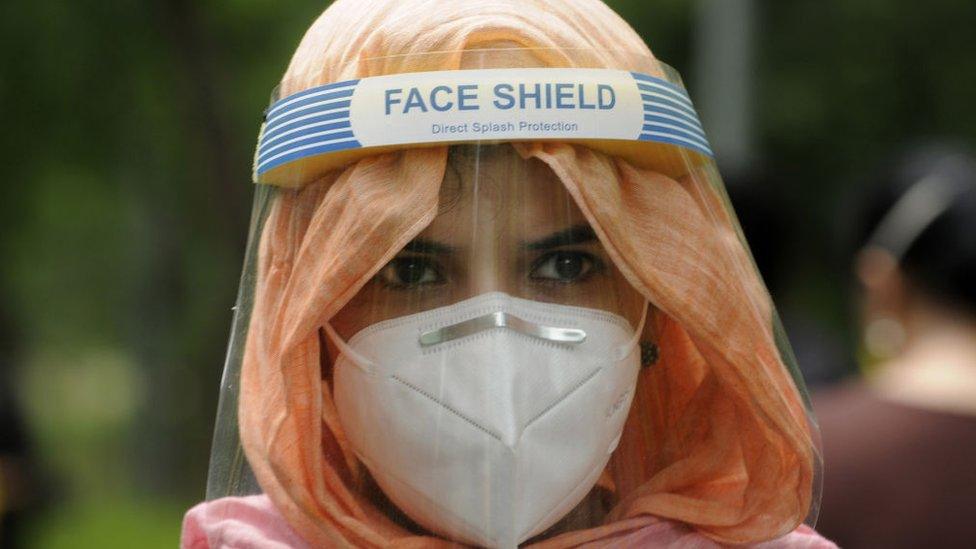
Students have been appearing for other entrance exams with masks and shields
He is referring to state-level competitive tests that were held in the two southern states earlier this year. Local media had reported overcrowding and lack of social distancing measures outside the exam centres.
India's education minister, Ramesh Pokhriyal Nishank, has said that most students do not want the exam postponed. As evidence, he pointed to the fact that 80% of those who had registered for the JEE had already downloaded their admit cards, which they need to access the centres.
Students may also have no choice but to take the exam if it isn't postponed since they may not wish to miss a whole academic year and the chance of applying to colleges.
Why are these tests so important?
The National Eligibility cum Entrance Test (NEET) and Joint Entrance Exam (JEE) are both annual competitive tests that effectively determine the careers of millions of Indian students.
While the former is for medical colleges, the latter is for engineering colleges.
Some 2.5 million students are expected to sit the tests, which are now scheduled to take place in the first two weeks of September across India.
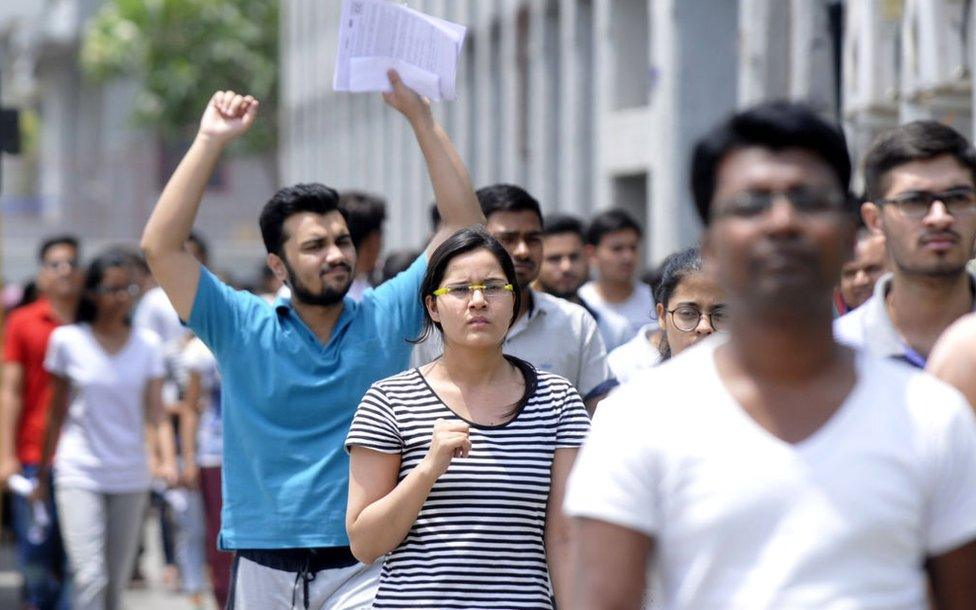
More than a million students appear for these competitive tests each year
They are some of the toughest exams to crack, and students often enrol in coaching institutes years ahead to prepare.
India produces millions of engineering graduates and aspiring doctors every year, but the competition for these coveted professions is stiff. So, a high score in these tests would land someone in a top college, increasing their chances of a good job.
The highest performers in the JEE, for instance, would end up in one of several Indian Institutes of Technology, widely seen as the country's best engineering schools.
What have the reactions been?
As students continue to tweet appealing to Prime Minister Narendra Modi and senior politicians, the issue has drawn a lot of reaction on social media.
Even Greta Thunberg weighed in on the students' behalf.
Allow X content?
This article contains content provided by X. We ask for your permission before anything is loaded, as they may be using cookies and other technologies. You may want to read X’s cookie policy, external and privacy policy, external before accepting. To view this content choose ‘accept and continue’.

Closer to home, opposition leader, Rahul Gandhi, BJP MP Subramanian Swamy, and West Bengal Chief Minister Mamata Banerjee have all asked the government to reconsider its decision to go ahead with the exams in September.
Allow X content?
This article contains content provided by X. We ask for your permission before anything is loaded, as they may be using cookies and other technologies. You may want to read X’s cookie policy, external and privacy policy, external before accepting. To view this content choose ‘accept and continue’.
Calling the refusal to postpone the exams "a giant mistake", Mr Swamy went as far as to compare the move to a former Prime Minister Indira Gandhi's forced sterilisation campaign.
Ms Banerjee has written two letters to Mr Modi asking him to intervene on the behalf of students.
"Such intervention is very much essential in the larger interest of the students to facilitate creating a situation whereby the students will neither be subjected to grave health risk nor they will be facing a career risk," she wrote.
- Published18 July 2019
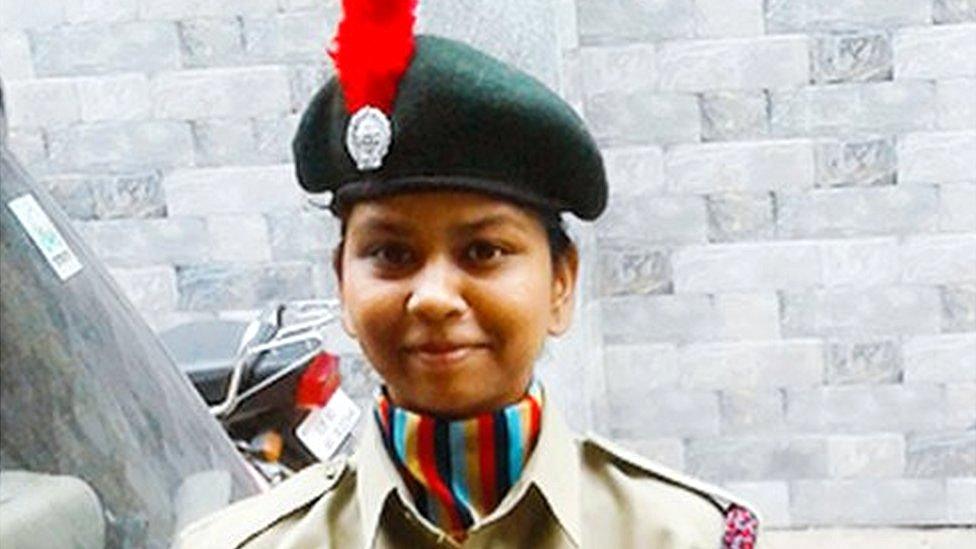
- Published19 October 2019
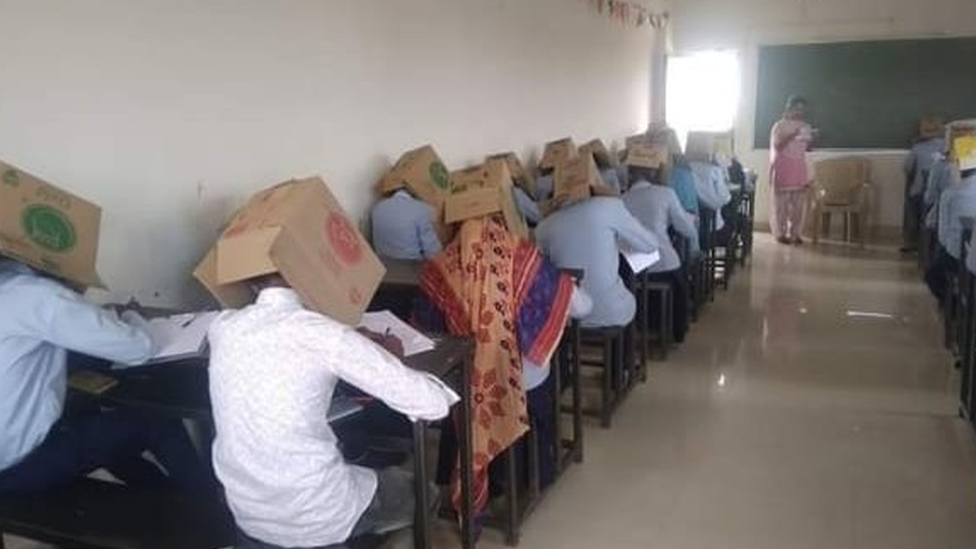
- Published30 April 2013
